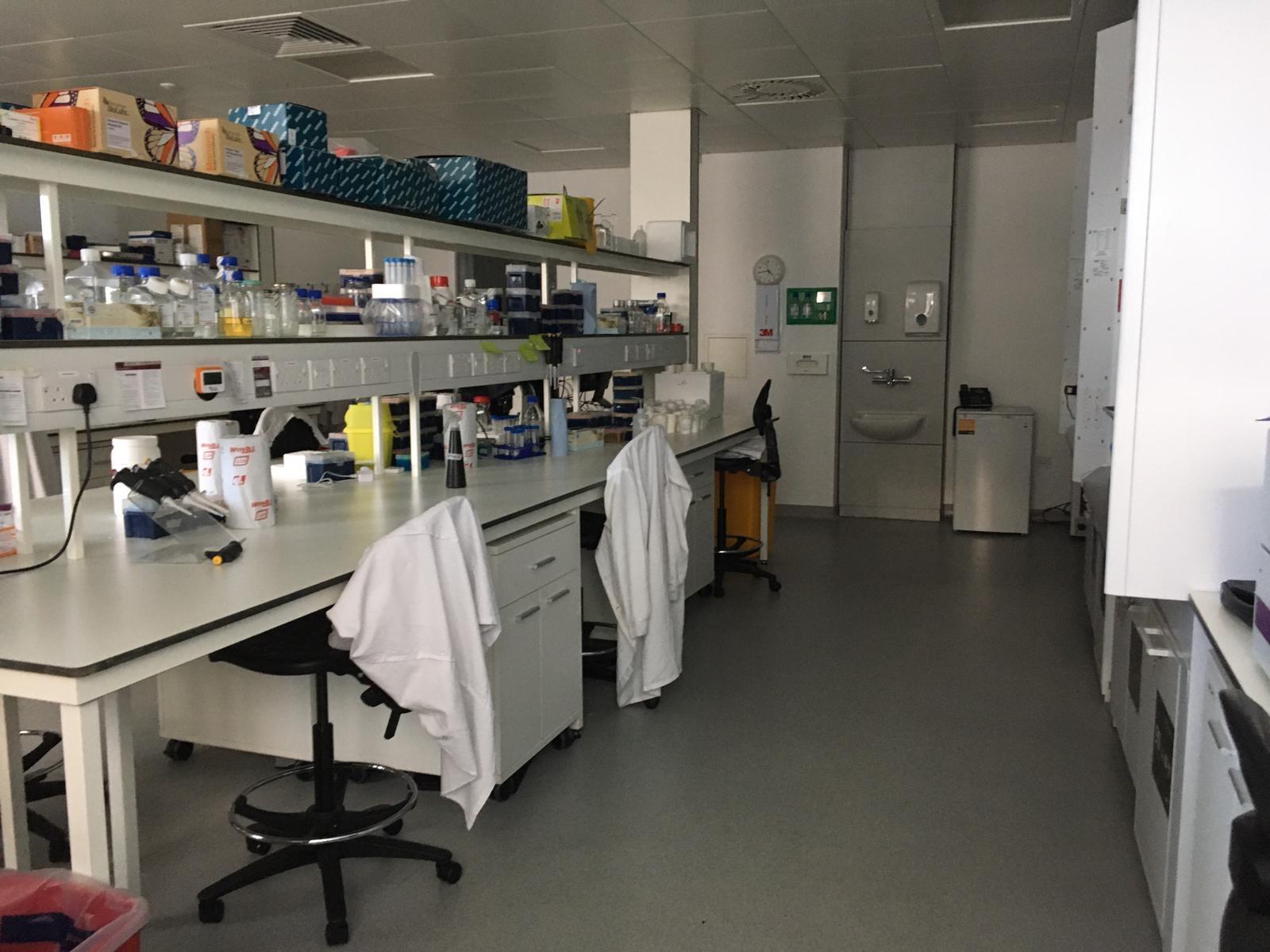
We are a research group investigating how antimicrobial resistance happens and what drives it Alongside this, our group is also trying to discover and develop new antimicrobials which can be used to kill resistant bacteria. We are made up of students (BSc, MSc and PhD), research assistants and postdocs and are all passionate about our topic. We think it is important, and know that without research by ourselves, and our colleagues and collaborators around the world, antimicrobial resistance will result in more loss of life; eloquently predicted by AMR Review a few years ago.
On Friday 20th March we had to do one of the hardest things ever; we had to prepare our labs to enable us to work from home. Due to the virus SARS-CoV-2, which causes COVID-19 disease, all non- essential activities have had to stop so we can work from home, become socially distant and self-isolate.
This has been hard for us, collectively we have a mixture of feelings including anxiety, fear, helplessness, guilt and anger to name but a few. We all have deadlines to meet, project thesis to write, grants to deliver on but ‘work from home’ we must as it is for the greater good and it is one of the ways we can contribute to the international efforts against COVID-19. Many of us have volunteered to work with the teams remaining at LSTM who are carrying out testing, developing diagnostics and looking for drugs which are active against SARS-CoV-2. Not all of us can due to our personal circumstances but it is comforting knowing that those that do are contributing directly to the School’s effort as the pandemic plays out. Along with our experimental research, our flagship public engagement project, Swab and Send has ceased activity whilst making all of our swabs available to the diagnostic teams should they need them due to an international shortage of swabs.
As we are primarily a microbiology lab and we may be away for months we have had to dispose of everything; hundreds of agar plates, cultures, bottles and bags of biological waste have had to be processed with unprecedented speed, a task which fell to the few as some of us were already in isolation at home. This needs to be done for safety reasons, so we do not return to some biological surprises reminiscent of a multitude of microbiology-based horror movies.
This herculean task as brought us closer together as a group, whilst focussing on this task rather than our projects we lean on each other and share anxieties and fears, talk them through via our Whatsapp group and nervously joke about how different the next few months are going to be and what it will be like when we return.
The strong and supportive relationship that has been built among the members of the group throughout the years made it much easier, especially for those who are away from their family, to cope with anxiety. Some of us are international students and being away from home countries and families makes it difficult to deal with uncertainty as we don’t know how long this will last. Yes, we are far away from our family, but we are lucky to have a supportive “lab family” here in the UK. We made it clear that we are in this together, and no one will be left alone. We organised regular virtual coffee breaks and meetings in which we stay connected and make sure that none of us are mentally isolated.
We support each other – we will likely need to more as time goes by.
One thing we won’t forget however is what we were doing before this started; working towards understanding and solutions of one of the greatest challenges of our time. Whilst we can carry out analysis and writing at home and as we wait for the COVID-19 infection to do its thing, run its course and run out of hosts, we remember this; many, if not most, of the COVID-19 patients will also take antibiotics, resistance will not go away and we will have a problem to continue to tackle when we return.
Don’t get complacent AMR; we will be back.